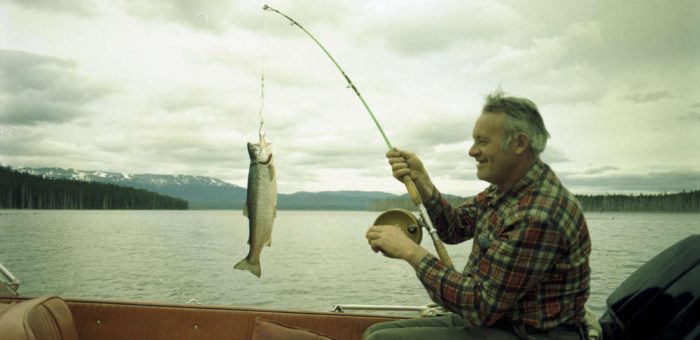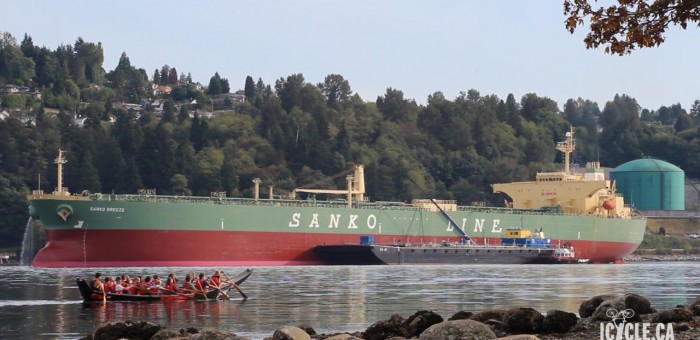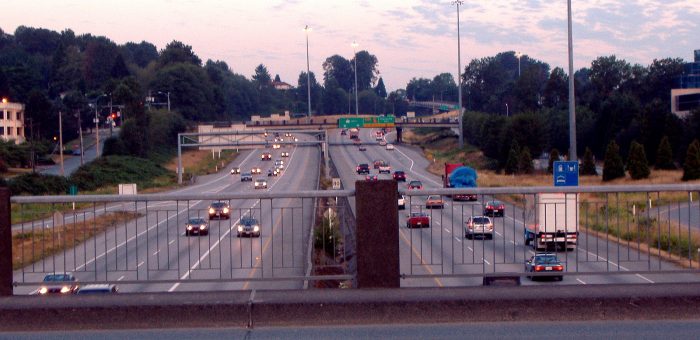Environment
Introducing Endangered Species Legislation for British Columbia
Today in the legislature I introduced a private member’s bill entitled Bill M 225 — Endangered Species Act, 2017. This Act builds off the Ontario Endangered Species Act and the B.C. version of their legislation tabled by the BC NDP in 2011. My office was grateful to work with Gwen Barlee from the Wilderness Committee and environmental lawyer Sean Nixon from EcoJustice to close loopholes and make the bill more proactive and preventative. I also incorporated language from the United States Federal Endangered Species Act to make it more effective and comprehensive. Of note is the addition of a section that mirrors the US Endangered Species Committee, known as the “God Squad” because of the substantial impact of its decisions on the natural world.
Below I reproduce the text and video of the speech I gave as I introduced the bill. I also include the accompanying media release.
Text of my Introduction
A. Weaver: It gives me great pleasure to move that a bill intituled Endangered Species Act, 2017, of which notice has been given, be introduced and read a first time now.
Motion approved.
A. Weaver: I’m pleased to be introducing a bill intituled the Endangered Species Act, 2017. The world is in the midst of an extinction crisis, and humans are the driving force. British Columbia is the most biodiverse province in Canada, but it is also the home to more at-risk species than any other province. Half of British Columbia’s assessed species are deemed at risk.
In addition to identifying, protecting and rehabilitating at-risk wildlife populations and habitats, this act seeks to introduce proactive measures that will prevent healthy species from declining in the first place. The act substantively expands upon the Ontario Endangered Species Act, the B.C. version of their legislation tabled by the B.C. NDP in 2011 and the American federal Endangered Species Act. Under the guidance of lawyers and advocates who have worked tirelessly on this issue, I was able to close problematic loopholes and make this act more proactive, transparent and effective.
Of note is the addition of a section that changes how exemptions are made. Under this new section instead of being left to the discretion of the minister, if government or industry want to take actions that will result in a species going extinct, it is required to go through an independent publicly disclosed board review.
I move that the bill be placed on the orders of the day for second reading at the next sitting of this House after today.
Bill M225, Endangered Species Act, 2017, introduced, read a first time and ordered to be placed on orders of the day for second reading at the next sitting of the House after today.
Video of my Introduction
Media Release
Weaver introduces Endangered Species Act
For immediate release
February 27th, 2017
VICTORIA B.C. – The entire world in is the midst of an extinction crisis and humans are the driving force.
“In Canada, British Columbia is the most biodiverse province, but it is also home to more at-risk species than any other province,” says Andrew Weaver, Leader of the B.C. Green Party. “Half of B.C.’s assessed species are deemed at risk.”
“B.C.’s biodiversity is globally significant, rapidly declining, and lacking any substantial legal protection – this Act aims to change that by bringing into force standalone legislation to safeguard British Columbia’s native wildlife species and their habitat.”
In addition to identifying, protecting, and rehabilitating at-risk wildlife populations and habitats, this Act seeks to introduce proactive measures that will prevent healthy species from declining in the first place.
“Compared to reactive government efforts to intervene in a habitat already out of balance, preserving healthy ecosystems is easier, more cost effective, and avoids needless animal suffering,” says Weaver. “Furthermore, as the global climate warms and precipitation patterns shift, having a complete ecosystem within which animals and plants can try to adapt will be essential.
“The Federal Species at Risk Act and B.C.’s current non-binding patchwork approach to protecting wildlife is clearly not working. The biodiversity in our province is prodigious, but it is not without risk. We will lose it if we do not act.”
This Act builds off the Ontario Endangered Species Act and B.C. version of their legislation tabled by the B.C. NDP in 2011. It incorporates language from the United State Federal Endangered Species Act to make it more effective, proactive, preventative, and comprehensive. Of note is the addition of a section that mirrors the US Endangered Species Committee, known as the “God Squad” because of the substantial impact of its decisions on the natural world.
– 30 –
Media contact
Mat Wright, Press Secretary
+1 250-216-3382 | mat.wright@leg.bc.ca
Introducing Right to Roam legislation in British Columbia
Today in the legislature I introduced a private member’s bill entitled Bill M223 — Right to Roam Act. This Bill reestablishes the rights of British Columbians to access public lands, rivers, streams, and lakes, and to use these spaces to fish, hike and enjoy outdoor recreation.
Increasingly, British Columbians are being fenced out of wild areas that have been enjoyed by the public for generations. One particularly high profile example involves public access to Minnie, Stoney and other lakes surrounded by Douglas Lake Ranch spread out over more than 500,000 acres. Approximately 365,000 acres are already crown land with full public access. But concern over access to several lakes was raised when Stoney Lake Road was suddenly gated in the late 1970s and subsequently locked in the early 1980s.
Below I reproduce the text and video of the speech I gave as I introduced the bill. I also include the accompanying media release.
Text of my Introduction
A. Weaver: I move that a bill intituled the Right to Roam Act, 2017, of which notice has been given, be introduced and read a first time now.
Motion approved.
A. Weaver: I’m pleased to be introducing a bill intituled the Right to Roam Act, 2017.
The ability to access and experience nature is a right for all British Columbians, and we must protect it. This bill will re-establish the rights of British Columbians to access public lands, rivers, streams and lakes and to use these spaces to fish, hike and enjoy outdoor recreation.
Hunting, fishing and outdoor recreation are a pivotal part of British Columbia’s heritage and form an important part of the fabric of present-day life in British Columbia. They are also vital to the understanding, conservation and management of fish and wildlife in our province.
Increasingly, however, British Columbians are being fenced out of wild areas that have been enjoyed by the public for generations.
One particularly high profile example involved public access to Minnie, Stoney and other lakes surrounded by Douglas Lake Ranch, spread out over more than 500,000 acres. Public access was prevented when Stoney Lake Road was suddenly gated in the 1970s and subsequently locked in the 1980s. This bill, which is built on a combination of B.C.’s existing Hunting and Fishing Heritage Act and Nova Scotia’s Angling Act, aims to address and prevent such conflicts.
I move that the bill be placed on the orders of the day for second reading at the next sitting of the House after today.
Bill M223, Right to Roam Act, 2017, introduced, read a first time and ordered to be placed on orders of the day for second reading at the next sitting of the House after today.
Video of my Introduction
Media Release
Weaver introduces Right to Roam Act
For immediate release
February 27th, 2017
VICTORIA B.C. – Locked gates on back roads are increasingly restricting access to wild lands in the province, making it harder for outdoors people to go hunting, fishing or hiking. A new bill tabled Monday by Andrew Weaver, Leader of the B.C. Green Party, would put a stop to that practice.
“British Columbians are increasingly being fenced out of the province’s wild lands. The ability to access and experience nature is a public right, and we must protect it,” says Weaver, who is the MLA for Oak Bay-Gordon Head. “Free public access to the outdoors is vital to people’s health and well-being, but it is also vital to the health and well-being of our environment. People protect what they know and love. If we become disconnected from our environment we risk disengaging with the fight for its future.”
In many regions of the province, the only way to access wild Crown lands is via logging roads, public back roads, or across privately owned forests and uncultivated areas. While casual public use of these accessways has not been an issue in the past, there is a growing trend of neighbouring landowners and forestry companies locking people out. Some are building fences and installing locked gates to block access altogether, others are implementing strict schedules or access fees. In extreme cases, British Columbians are getting arrested for trespassing while walking to public lakes they have been fishing for generations.
The Nicola Valley Fish and Game Club, a non-profit association dedicated to the local preservation and management of habitat and wildlife, for example, has spent years in a legal battle with the owner of the Douglas Lake Ranch over the public right to fish in public lakes..
“The Right to Roam Act aims to address and prevent conflicts like the Douglas Lake Ranch case. Nature in British Columbia should be open to all, not to just the privileged few,” says Weaver.
This Act was built off the existing BC Hunting and Fishing Heritage Act and the Nova Scotia Angling Act. It includes a few additional amendments, made with reference to a UVic Environmental Law Clinic report about enhancing public access to wild lands.
“By allowing people to cross uncultivated wild land to access public lands, rivers, streams, and lakes, the Right to Roam Act aims to re-establish the rights of British Columbians and to use these spaces to fish, hike and enjoy outdoor recreation.”
– 30 –
Media contact
Mat Wright, Press Secretary
+1 250-216-3382 | mat.wright@leg.bc.ca
Response to Minister of Environment’s cancellation of Cobble Hill Holdings Permit
Response to Minister of Environment’s cancellation of Cobble Hill Holdings Permit
February 23, 2017
For immediate release
VICTORIA B.C. — After years of community members fighting their government over the safety of their drinking water, the B.C. Minister of Environment has cancelled the waste discharge permit for Cobble Hill Holdings, effective immediately.
“I’m glad the Minister has finally pulled the permit, but it’s unfortunate that it took this long. It is egregious that the people of Shawnigan had to take their government to court simply to receive representation,” Andrew Weaver said, Leader of the B.C. Green Party.
Weaver first visited the site with community members and Shawnigan Lake Area Director, Sonia Furstenau, on April 2nd, 2015. During that time Weaver collected water samples which were tested for contamination at the University of Victoria. His initial analysis of the case can be found in a report posted to his website on April 18th, 2015.
Furstenau, B.C. Greens candidate for Cowichan Valley and Deputy Leader of the B.C. Green Party, added, “While I’m thrilled for the residents of Shawnigan that the Minister has done the right thing and cancelled the permit, I remain committed to holding the government to account to ensure the contaminated soil is cleaned up safely. The residents of Shawnigan should be proud of what we accomplished today, but they deserved to see action from their government much sooner.”
Weaver continued, “Sonia Furstenau has shown outstanding leadership on holding the government to account over their dereliction of duty on this file. I’m incredibly proud to have her on the B.C. Greens team. This kind of principled representation is what communities across B.C. deserve and can expect from the B.C. Greens.
“The situation that has unfolded in Shawnigan shows why the government’s professional reliance model is completely inadequate for environmental protection and community safety. Instead of drawing on the technical expertise of the civil service who serve the public interest, the government cut these experts and now relies instead on the judgement of experts hired by corporations with vested interests.
“The Minister does not have a plan for how or even if the contaminated soil will be removed. Who is going to deal the contaminated soils now? Where is it going to go?”
– 30 –
Media Contact
Mat Wright Press Secretary, Andrew Weaver MLA
1 250 216 3382
mat.wright@leg.bc.ca
Background
MLA Andrew Weaver first visited the site with community members and Shawnigan Lake Area Director, Sonia Furstenau, on April 2nd, 2015. During that time Weaver collected water samples which were tested for contamination at the University of Victoria. His initial analysis of the case can be found in a report posted to his website on April 18th, 2015. Subsequent comment and analysis were published as the situation evolved.
Professional reliance model
In 2001, after the BC Liberals were elected to their first term, they began to cut the size of government. As a direct consequence of government downsizing, technical expertise within the civil service became a casualty. Instead of having technical expertise in house, the government moved towards wide scale use of Professional Reliance in the permitting process. Under the Professional Reliance approach, the Ministry relies on the judgment and expertise of qualified experts hired by a project proponent.
What is particularly important to note is that in March 2014, the Office of the British Columbia Ombudsperson released a scathing report criticizing the Professional Reliance model with respect to streamside protection and enhancement areas. The report, entitled The Challenges of Using a Professional Reliance in Environmental Protection – British Columbia’s Riparian Areas Regulation made 25 recommendations, 24 of which the government agreed to accept. But this acceptance came almost a year after the Ministry of Environment granted SIA their permit.
The government’s approach to follow the Professional Reliance model is fraught with difficulties. The role of the government is to protect the public interest. When government is making decisions solely based on a project proponent’s expert opinion, it is very troubling. Imagine a judge in a court of law only listening to the expert opinion on one side of a case (plaintiff or defendant) and not allowing expert opinion to be submitted from the opposing side.
Bill M219 — Recall and Initiative Amendment Act, 2017
Today in the Legislature I rose to re-introduce my private members bill entitled Bill M219: Recall and Initiative Amendment Act.
It is clear that British Columbians are concerned about oil pipelines and have lost confidence in the federal review process. The problem is, the tools we have to make our voices heard are too restrictive. If enacted, this bill would give British Columbians a stronger voice on how oil pipeline proposals are evaluated in the province.
Last October the residents of Bella Bella saw first hand how unprepared we are for an oil spill. It’s clear from the federal hearings I participates in on the Trans Mountain pipeline that these concerns aren’t being adequately addressed. In addition, no specifics have been outlined as to how recently announced federal funding will be used to prepare for a heavy oil spill.
My bill would make it easier for British Columbians to require their provincial government to hold a made-in-B.C. hearing process on oil pipelines.
Introductory Remarks on the Bill
A. Weaver: I move that a bill intituled the Recall and Initiative Amendment Act, 2017, of which notice has been given, be introduced and read a first time now.
Motion approved.
A. Weaver: It gives me great pleasure to introduce this bill, which is designed to empower British Columbians so that their voices can be more effectively heard on environmental reviews of major projects such as oil pipelines.
If we are to re-engage British Columbians in our democracy, we need to actively seek their view on far more of what we debate in this Legislature. We also need to provide them with additional tools to hold their government to account. The Recall and Initiative Amendment Act is one such tool. British Columbians have lost faith in the federal review process, particularly as it pertains to oil pipeline proposals. The province has not listened to their voices.
This bill would offer British Columbians an opportunity to ensure that their voices are indeed heard. If an initiative were to pass under the proposed changes in the Recall and Initiative Amendment Act, it would require government to pull out of an existing environmental equivalency agreement for a particular project and hold its own made-in-B.C. review of, for example, a proposed heavy-oil pipeline.
I move that the bill be placed on the orders of the day for second reading at the next sitting of the House.
Bill M219, Recall and Initiative Amendment Act, 2017, introduced, read a first time and ordered to be placed on orders of the day for second reading at the next sitting of the House after today.
Video of Introductory Remarks
Bill M206 — Rideshare Enabling Act, 2017
Today in the legislature I reintroduced my private member’s bill now titled Rideshare Enabling Act, 2017. This bill is intended to continue the important public dialogue about the rules we need to make ridesharing a reality for British Columbia.
Provinces and cities across Canada and throughout North America have been using ridesharing technology for years. But BC struggles to articulate a vision for promoting innovation in the tech sector. In fact, 22 CEOs and founders from Vancouver’s tech industry wrote an open letter last year to the BC government stating “we are compelled to express our concern regarding the provincial government’s long-standing inaction on ridesharing regulation in B.C. and how we now find ourselves falling behind the rest of the world.”
British Columbians have only heard mixed things from the government on the topic of ridesharing. When the cabinet minister responsible for developing regulations for ridesharing services calls these emerging companies ‘pushy’, it doesn’t set the right tone.”
In my view, it’s time the conversation was more transparent and engaged British Columbians about what they want to see happen with these innovative new services. There are numerous voices calling for this government to truly support the emerging tech sector. For some reason, they are having a hard time being heard by this government.
Below are the video and text of the introduction of my bill together with our accompanying media release.
Video of Introduction
Text of Introduction
A. Weaver: I move that a bill intituled Rideshare Enabling Act, 2017, of which notice has been given, be introduced and read a first time now.
Motion approved.
A. Weaver: I’m very pleased to be introducing a bill intituled the Rideshare Enabling Act, 2017. Ride-sharing is part of the new creative economy happening in B.C. Various programs exist around the world that use ride-share technology, and other jurisdictions have brought in legislation to address the application of this technology in our society. B.C., however, is falling quickly behind. Vancouver is now the largest city in North America without an operating ride-share company, like Lyft, for example, or Uber.
Legislation is needed to provide provincial standards that must be followed for any ride-sharing program to exist in our province. This bill is intended to continue that conversation.
I move that the bill be placed on the orders of the day for second reading at the next sitting of the House after today.
Bill M206, Rideshare Enabling Act, 2017, introduced, read a first time and ordered to be placed on orders of the day for second reading at the next sitting of the House after today.
Media Release
February 16th, 2017
For immediate release
Weaver Introduces Rideshare Enabling Legislation
VICTORIA B.C. – The Rideshare Enabling Act was introduced today in the BC Legislature by Andrew Weaver, Leader of the B.C. Green Party and MLA for Oak Bay-Gordon Head.
“The sharing economy exists and it’s going to get bigger,” says Weaver. “Rideshare technology is a part of that new economy and we need to create rules so that these industries don’t operate in a vacuum.”
“The B.C. Liberals are trying to rebrand themselves as champions of new technology after their colossal LNG failure, but they can’t be taken seriously on this file. They are already so far behind and continue to be barriers to innovation.”
Ridesharing, a driver using their personal vehicle to accept a trip request from a rider using mobile technology, is an international phenomenon with dozens of technology companies participating. Governments around the world and across Canada have embraced ridesharing to increase transportation options, encourage less personal car ownership, reduce impaired driving, create more income opportunities, and facilitate more efficient transportation. To date, over 70 states and cities across the United States and many more around the world have adopted ridesharing regulations.
Weaver introduced his private member’s bill with the intention of starting a conversation about what legislation would best meet the needs of British Columbians. This process needs to involve intensive consultation with municipal governments, the BC Taxi Association, and British Columbians across the province.
“Public safety must be a priority as we move forward with ridesharing in this province and to do so we need to legislate certain common standards. We need to ensure that anyone participating as a driver in rideshare technology doesn’t have a criminal record or history of reckless driving. Refusing to discuss the issue is not helping.”
“I’m hopeful the government takes a look at the bill I brought forward and realizes that they need to address this situation. They cannot continue to keep their heads in the sand. We need smart regulations that don’t create an unfair market.”
– 30 –
Media contact
Mat Wright, Press Secretary
+1 250-216-3382 | mat.wright@leg.bc.ca








